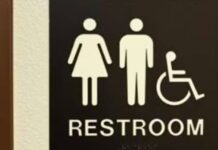
The Democrats have been scrambling and fumbling around. The Party is facing extinction.
And now the Democrats have officially waved the white flag of surrender.
Democrats’ New Plan for 2028 Faces Skepticism Amid Party Struggles
A group of influential Democrats, led by former Arizona Democratic Party chair Andrei Cherny, is working on a new policy framework called “Project 2029” to prepare the party for the 2028 presidential election. The initiative aims to provide a clear agenda for the next Democratic nominee, drawing inspiration from the Republican-backed Project 2025, which outlined policies for the GOP. Cherny argues that Vice President Kamala Harris’ 2024 defeat stemmed from her focus on criticizing President Donald Trump rather than promoting a robust policy vision. However, analysts doubt the project’s ability to reverse the Democratic Party’s recent losses and reconnect with disillusioned voters.
Skeptics point to deep divisions within the Democratic Party as a major hurdle. Political commentator Adolph Mongo described Project 2029 as a bold but unrealistic effort, citing the party’s fractured state. He noted that progressive policies, particularly from the far left, have alienated key voter groups, including Black and Latino communities, who have historically supported Democrats. Mongo highlighted the defection of some Democratic leaders, such as a Detroit mayor leaving the party, and warned that the party’s base is eroding as voters shift toward Republicans.
The Democratic Party’s struggles are compounded by its failure to deliver on long-standing promises, according to Mongo. He pointed to persistent issues like high crime rates and unemployment in Democratic-led cities as evidence of the party’s disconnect with urban voters. These challenges have fueled voter frustration, making it difficult for Democrats to regain trust through initiatives like Project 2029.
Tom Basile, a contributor to the Daily Caller and Newsmax host, echoed these concerns, arguing that the Democratic Party lacks credible messengers to appeal to mainstream Americans. He noted that prominent figures like Rep. Alexandria Ocasio-Cortez, Sen. Bernie Sanders, and New York Assemblyman Zohran Mamdani—known for their socialist-leaning policies—dominate the party’s public image. Basile contends that socialism is at odds with American values, limiting the party’s ability to broaden its appeal.
The rise of socialist-leaning leaders like Mamdani, who won a surprising victory in New York City’s Democratic mayoral primary in June 2024, signals a potential shift toward more progressive policies. This trend worries moderates who fear it could further alienate swing voters. Basile emphasized that the party’s flirtation with far-left ideas over multiple election cycles has eroded public trust, making promises of moderation seem insincere.
Financial troubles add to the Democrats’ woes. The Democratic National Committee (DNC) is reportedly facing a significant drop in donations, leaving it strapped for cash. Basile noted that this financial strain hampers the party’s ability to craft and promote a compelling message. Combined with internal tensions between progressive and centrist factions, the DNC’s challenges make initiatives like Project 2029 appear overly ambitious.
Critics also argue that the Democratic Party has prioritized divisive social issues—such as transgender rights and open borders—over economic concerns that resonate with working-class voters. Basile pointed to the Biden-Sanders Unity platform from 2020 and the party’s handling of border policies as examples of a radical agenda that fails to align with the broader electorate. In contrast, he described President Trump as effectively addressing the needs of middle-class and blue-collar voters, stealing traditional Democratic strongholds.
Democrats’ Polling Woes Reflect Deep Public Discontent
Recent polling data paints a grim picture for the Democratic Party as it grapples with its lowest approval ratings in decades. A CNN poll from April 2025 revealed that only 21% of Americans view the Democratic Party favorably, a sharp decline from previous years. This figure aligns with posts on X, which cited a 29% approval rating in March 2025, with just 7% of respondents holding a “very favorable” view—the lowest ever recorded. These numbers underscore a growing public disillusionment with the party following its sweeping losses in the 2024 election.
The Democratic Party’s unfavorable ratings consistently outpace its favorable ones, according to a RealClearPolitics average from March to May 2025, which showed a net negative spread of -23.6 points (34.7% favorable vs. 58.3% unfavorable). An NBC News poll from March 2025 reported that 55% of respondents held a negative view of the party, the lowest since the poll began in 1990. Even among Democratic voters, 20% expressed negative views, reflecting internal dissatisfaction with the party’s direction.
Kamala Harris’ 2024 loss to Donald Trump exacerbated the party’s struggles, particularly among key demographics. A Catalist report highlighted significant declines in support among Latino men (down 12 points from 2020), Black men (down 7 points), and young voters. The party also lost ground with working-class voters, with Trump winning 56% of voters without college degrees in 2024, according to NBC News exit polls. This shift marks a reversal from past elections, where Democrats held stronger support among low-income and non-college-educated voters.
Polls also reveal a disconnect between Democratic priorities and voter concerns. A Reuters/Ipsos poll from June 2025 found that 62% of Democrats want new leadership, signaling frustration with the current establishment. Voters prioritize economic issues like the cost of living, but only 58% believe party leaders share this focus, particularly on reducing corporate influence in politics. This gap highlights the party’s struggle to align its messaging with public demands.
The 2024 election exposed deeper structural issues for Democrats. The New York Times reported that Harris underperformed Biden’s 2020 results across cities, suburbs, and rural areas, with counties nationwide shifting rightward. The party’s focus on progressive social issues, such as transgender rights, has been criticized for alienating moderate voters. For example, Rep. Seth Moulton faced backlash for questioning the party’s stance on transgender athletes, illustrating the risks of challenging the party’s leftward drift.
Democrats face an uphill battle in the 2026 midterms and 2028 presidential election. While a YouGov poll from June 2025 showed Democrats leading Republicans by 2 points in the generic congressional ballot (44% to 42%), other surveys, like an RMG/NapolitanNews poll, gave Republicans an 8-point edge. The party’s ability to regain ground may hinge on its performance in the midterms, where historical trends favor the opposition party. However, persistent unfavorable ratings and internal divisions could undermine these efforts.
The Democratic Party’s current trajectory suggests a need for a fundamental overhaul. With declining support, financial struggles, and a fractured base, initiatives like Project 2029 face significant challenges in restoring the party’s appeal. As voters increasingly turn to Republicans on issues like the economy and public safety, Democrats must address their disconnect with the American public to avoid further electoral setbacks.



















